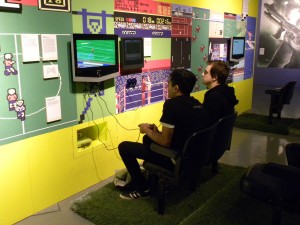The policy implications of this proposed project cover the social, cultural and commercial aspects:
First, it is a social fact that games have been integrated into the daily live of citizens as a mainstream form of digital entertainment, a site of education, and even as a profession through different communication technological devices. In Hong Kong kids are educated with online game; teenagers and educators are users of educational games in Edcity, youth on average, owns more than one handheld game. While there are positive uses of gaming (in education, learning, commerce and enhancing community) there are also negative psychological effects accompanied with gaming, including addiction, pornographic and violent contents, and social conflicts triggered by online disputes. The proposed project intends to gauge the social and psychological effects of games and
Second, as Asian (most notably South Korea and Japan) and American markets have demonstrated, gaming, its secondary market, and its creative clustering with other creative industries can be an important source of contribution to the GDP growth. The current project proposes to construct a regulatory framework of game industries
Given the urgent need for relevant information and policies, this project aims to conduct a comprehensive study of the game industries in HK from an international comparative perspective. Based on empirical data collected in HK, China, Asia and other geographic areas, we will construct cultural policy proposals for the government to develop the game industries and regulate the social effects of gaming. Based on data on consumers of games and successful cases of game industries development, we will also devise business strategies for HK’s game industries to expand their operations and markets in China and Asia. The significance of these strategies lies not only in boosting HK’s economy and exports, but also in constructing an image of HK as an Asian regional hub and clusters for the creative industries. The policy implications of this project will be significant not merely for the game industries but also for HK’s other creative industries (films, pop music, design, fashion, and advertising) that are facing keen competition from Asian competitors aggressively cultivating their creative industries (Korea, Japan, Singapore, and China). As regards theoretical implications, our investigation of the political economy of game industries, creative labor, and consumption will enhance our understanding of the issues and challenges of games on the micro level as well as the role of games in the emerging cultural economy of global cities on the macro level.

